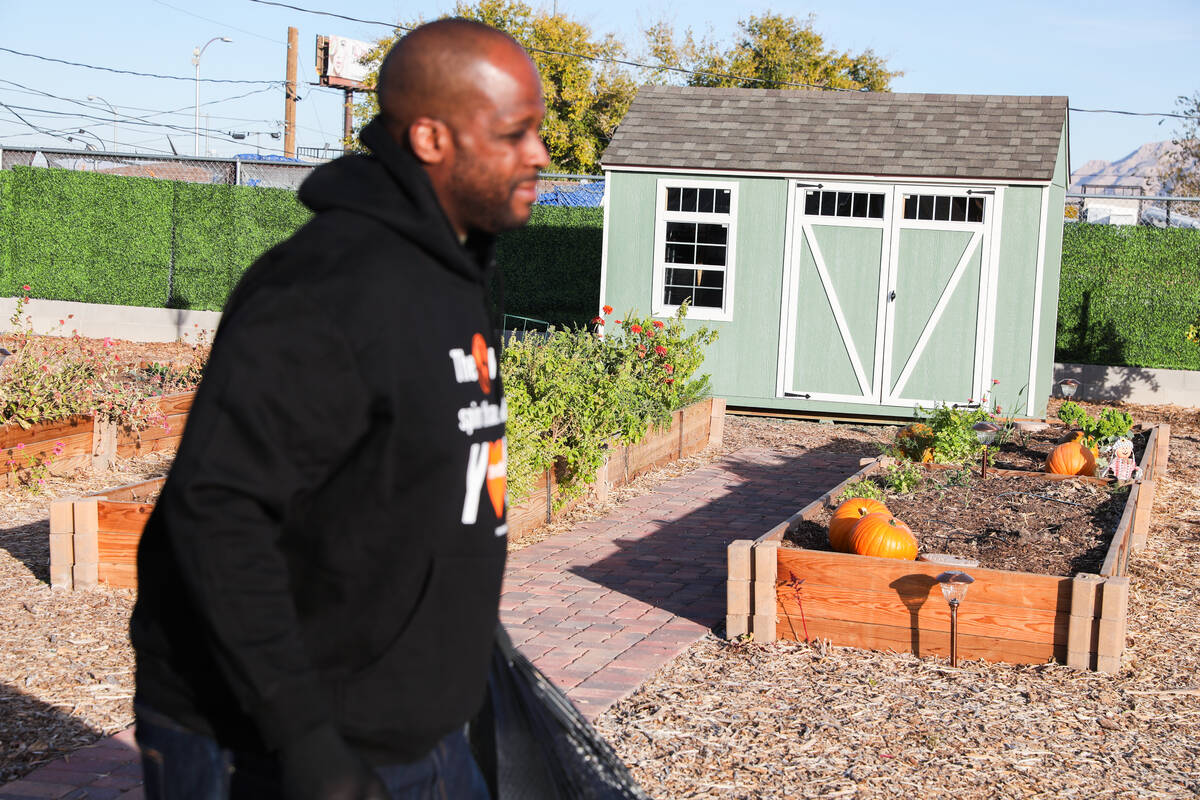Building community: Urban farm, greengrocer to serve Historic Westside
Reiny Thomas has seen it all in the Historic Westside. Born and raised in Las Vegas, the 46-year-old said life and love has been breathed into her community thanks to the work of a local nonprofit.
The Obodo Collective operates an urban farm on a half-acre property at 1300 C St. that grows fresh fruits and vegetables 11 months out of the year.
“When you walk through those gates the vibe you get, the essence you get from the place, from the people and when you’re eating it, you know it was done with so much love for the community,” Thomas said.
On a recent Monday afternoon, Executive Director Tameka Henry walked around what was a vacant lot before Obodo purchased it in 2019.
Now it’s a sprawling garden with planting beds and trees growing lemons, tomatoes, basil, curly mustard and arugula, to name just a few.
“When you’re driving through and you see all these vacant lots, abandoned buildings,” Henry said. “But there’s still life and history here.”
Obodo responded to problems that the COVID-19 pandemic exacerbated, including food and housing insecurity as well as multi-generational poverty.
Las Vegas City Councilman Cedric Crear said Obodo’s work complements the city’s strategic plan to make up for decades of a lack of investment in the Historic Westside.
“A lot of people talk about it and then there are people that do about it,” Crear said of Obodo.
The word obodo derives from the Igbo people — an ethnic group from Nigeria. It translates to city or community.
Obodo hosts farmers markets on Saturdays, cooking classes and gardening classes. In addition, Obodo sits in on eviction court hearings to help families stay housed.
“People want a sense of community. That’s always been the biggest downside I think about Vegas is that so much of the energy and focus has been on tourism and hospitality,” Food Programs Director Cheyenne Kyle said. “There’s a lot of missed opportunities to champion the ones who live in the city, who love the city, who are waving at their neighbors every morning when they wake up.”
Neighbors told Henry that before the property was vacant, it was the site of a cafe, credit union, beauty salon and church at different points in time.
“We can’t demolish this,” Henry said. “This is history.”
Instead, Obodo is building upon that history by turning the 600-square-foot building into a small grocery store. Henry said that if all goes to plan the store will be up and running by the spring.
The vision is a store where people can buy from a service window or browse inside for fresh produce and products from local small business owners without worrying about the cost.
“If you can’t afford it, we’re not going to deny you food,” Henry said.
Thomas, who has already enjoyed the farm’s watermelons, squash and cucumber, said the store would be her first choice for her fresh produce once it’s open.
The neighborhood surrounding the property is a food desert, Henry said, meaning there is not a grocery store for miles. She said many residents don’t have access to transportation to get them to a grocery store and the only food options nearby are fast food restaurants.
“We want to be able to use the space for what the community needs it for,” Henry said.
For more information, visit obodocollective.org.
Contact David Wilson at dwilson@reviewjournal.com.






















